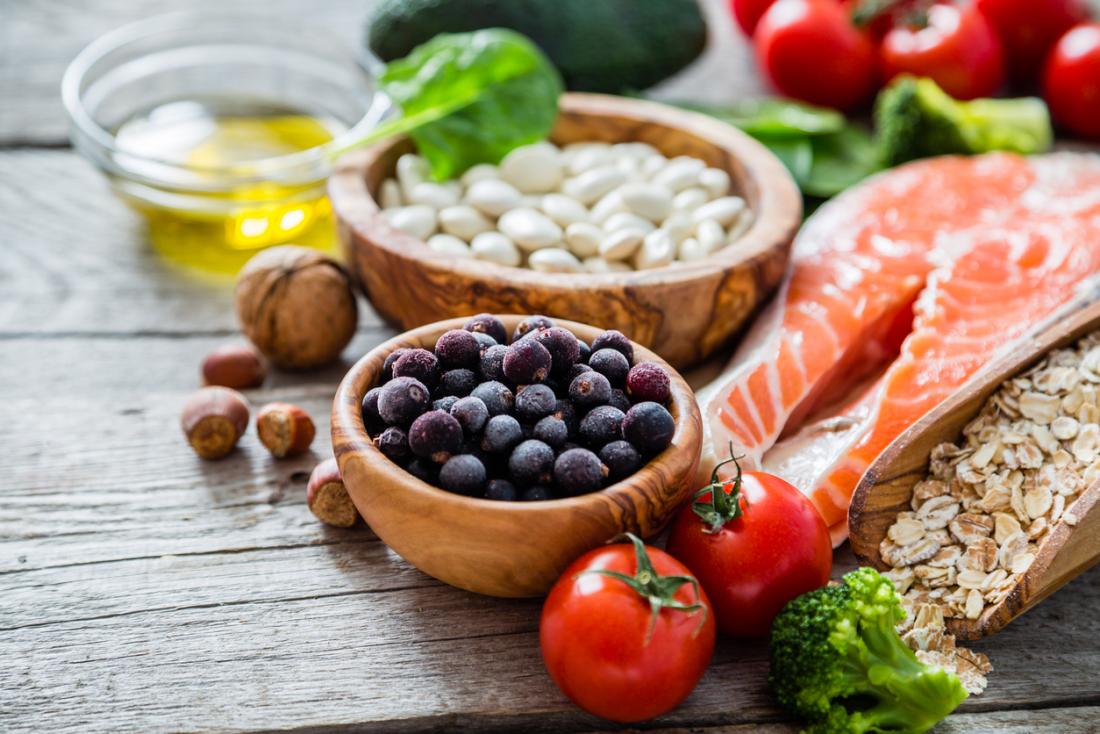
Among many other benefits, the Mediterranean diet has been shown to lower the risk of colorectal cancer. But the specifics of this beneficial role have not been studied in depth.
New research – presented at the ESMO 19th World Congress on Gastrointestinal Cancer, held in Barcelona, Spain – singles out the few components of the Mediterranean diet key for preventing colorectal cancer. The first author of the study is Naomi Fliss Isakov, Ph.D., of the Tel-Aviv Medical Center in Israel.
More specifically, the research looks at the link between the components of the diet taken both separately and in combination, as well as the risk of developing advanced colorectal polyps.
Colorectal cancer tends to develop from advanced polyps, or adenoma. However, the chances of polyps becoming malignant depend on various factors, including size, structure, and location.
Zooming in on the Mediterranean diet
Dr. Isakov and team examined 808 people who were undergoing either screening or diagnostic colonoscopies.
The participants were aged between 40 and 70 years old and were not at a high risk of colorectal cancer. The researchers took anthropometric measurements – such as body mass index (BMI) and height – of the participants, and they asked them to fill in a food frequency questionnaire. They also took part in a medical and lifestyle interview.
The researchers defined adherence to the Mediterranean diet as an above-average consumption of fruit, vegetables, nuts, seeds, and whole grains, as well as fish and poultry.
A below-median intake of red meat, alcohol, and soft drinks was also considered to be a key component of the diet. A Mediterranean diet was also described as having “a high ratio of monounsaturated to saturated fatty acids.”
For the purposes of the study, the researchers defined advanced polyps as adenomas larger than 10 millimeters in size, with a “high-grade dysplasia or villous histology.”
As the American Cancer Society (ACS) explain, the term “dysplasia” refers to the abnormal aspect of the polyps. “High-grade dysplasia” is a term used to describe polyps that appear abnormal or cancer-like. The ACS also note that larger adenomas tend to have a villous growth pattern and are more likely to lead to cancer.
Dr. Isakov and colleagues also examined healthy controls who did not have any polyps, either in the past or at the time of the study.
More fish, fruit reduces risk
Having compared individuals with polyp-free colonoscopies and those whose colonoscopy showed advanced polyps, the authors found a clear association between components of the Mediterranean diet and the risk of colorectal cancer.
People with advanced polyps reported consuming fewer elements of the Mediterranean diet. More specifically, the average was 1.9 Mediterranean diet components in the advanced polyps group, compared with 4.5 components in the polyp-free group.
Surprisingly, even two or three elements of the diet correlated with a 50 percent reduction in the risk of advanced polyps, compared with consuming no key components at all.
Additionally, the risk further decreased as the number of Mediterranean elements increased. The more elements of the Mediterranean diet people consumed, the lower were the chances of advanced polyps showing up in their colonoscopies.
The researchers adjusted for other risk factors associated with colorectal cancer and found that increased fish and fruit consumption, together with a low intake of soft drinks, was most likely to reduce the risk of advanced polyps.
We found that each one of these three choices was associated with a little more than 30 percent reduced odds of a person having an advanced, pre-cancerous colorectal lesion, compared to people who did not eat any of the MD [Mediterranean diet] components.”
Naomi Fliss Isakov, Ph.D.
She concluded, “Among people who made all three healthy choices the benefit was compounded to almost 86 percent reduced odds.”
ESMO spokesperson Dr. Dirk Arnold, of the Instituto CUF de Oncologia in Lisbon, Portugal, also comments on the findings, saying, “This large population-based cohort-control study impressively confirms the hypothesis of an association of colorectal polyps with diets and other lifestyle factors.”
“This stands in line with other very recent findings on nutritive effects, such as the potential protective effects of nut consumption and vitamin D supplementation which have been shown earlier this year.”
“However,” adds Dr. Arnold, “it remains to be seen whether these results are associated with reduced mortality, and it is also unclear if, and when a dietary change would be beneficial.”
Next, the authors plan to investigate the effects of the Mediterranean diet in a group at high risk of developing colorectal cancer.
[“Source-medicalnewstoday”]
